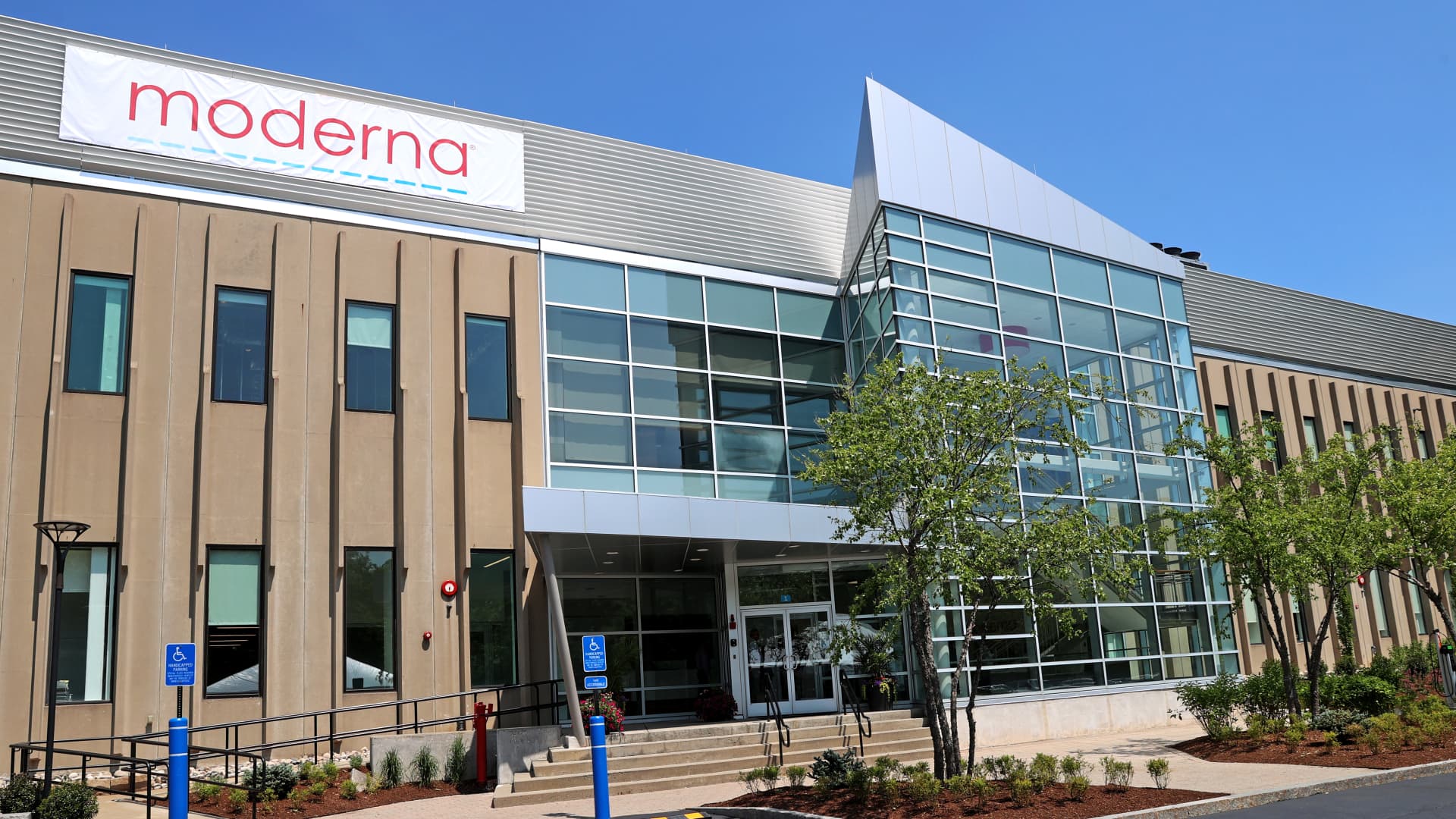
An exterior view of Moderna’s clinical manufacturing facility.
David L. Ryan | Boston Globe | Getty Images
Moderna and Merck‘s experimental cancer vaccine, when used in combination with Merck’s blockbuster therapy Keytruda, reduced the risk of death or relapse in patients with the most deadly form of skin cancer after three years, according to midstage trial data released Thursday.
The combination specifically slashed the risk of death or recurrence of the cancer, known as melanoma, by 49% in patients in later stages of the disease compared to those who received Keytruda alone after three years. The cancer vaccine in combination with Keytruda also reduced the risk of melanoma spreading to other parts of the body by 62%.
Those results build on midstage trial data the companies released earlier this year, which showed the efficacy of the combination in the same 157 patients over a shorter period. After around two years, the vaccine and Keytruda cut the risk of death or relapse by 44% in melanoma patients, and reduced the risk of the cancer spreading in the body by 65%, according to the earlier trial data.
The most common side effects of the vaccine after three years were fatigue, injection site pain and chills, according to Thursday’s data.
The new results suggest that the cancer shot used with the immunotherapy continues to provide meaningful health benefits to melanoma patients after they stay on the treatment for a longer period of time. The two drugmakers are continuing to study the combination as a treatment for melanoma in a late-stage trial, which began in July.
The vaccine, which uses the same mRNA technology as Moderna’s Covid vaccine, is custom-built based on an analysis of a patient’s tumors after surgical removal. The shot is designed to train the immune system to recognize and attack specific mutations in cancer cells.
Merck’s Keytruda, which is approved to treat melanoma and other cancers, belongs to a class of widely used immunotherapies known as checkpoint inhibitors designed to disable a certain protein that helps cancer evade the immune system.
The U.S. Food and Drug Administration gave breakthrough therapy designation to the cancer vaccine for the treatment of melanoma in February, which is intended to speed up the development and review of treatments for serious and life-threatening diseases.
Moderna and Merck are also testing the vaccine with Keytruda against other tumor types. On Monday, the drugmakers started a late-stage trial on the combination as a treatment for non-small cell lung cancer.
Melanoma is responsible for the large majority of skin cancer deaths, according to the American Cancer Society. The rate of melanoma has increased rapidly over the past few decades, according to the organization.
About 100,000 people will be diagnosed with melanoma in the U.S. this year and nearly 8,000 people are expected to die from the disease, according to the American Cancer Society.
Don’t miss these stories from CNBC PRO:







